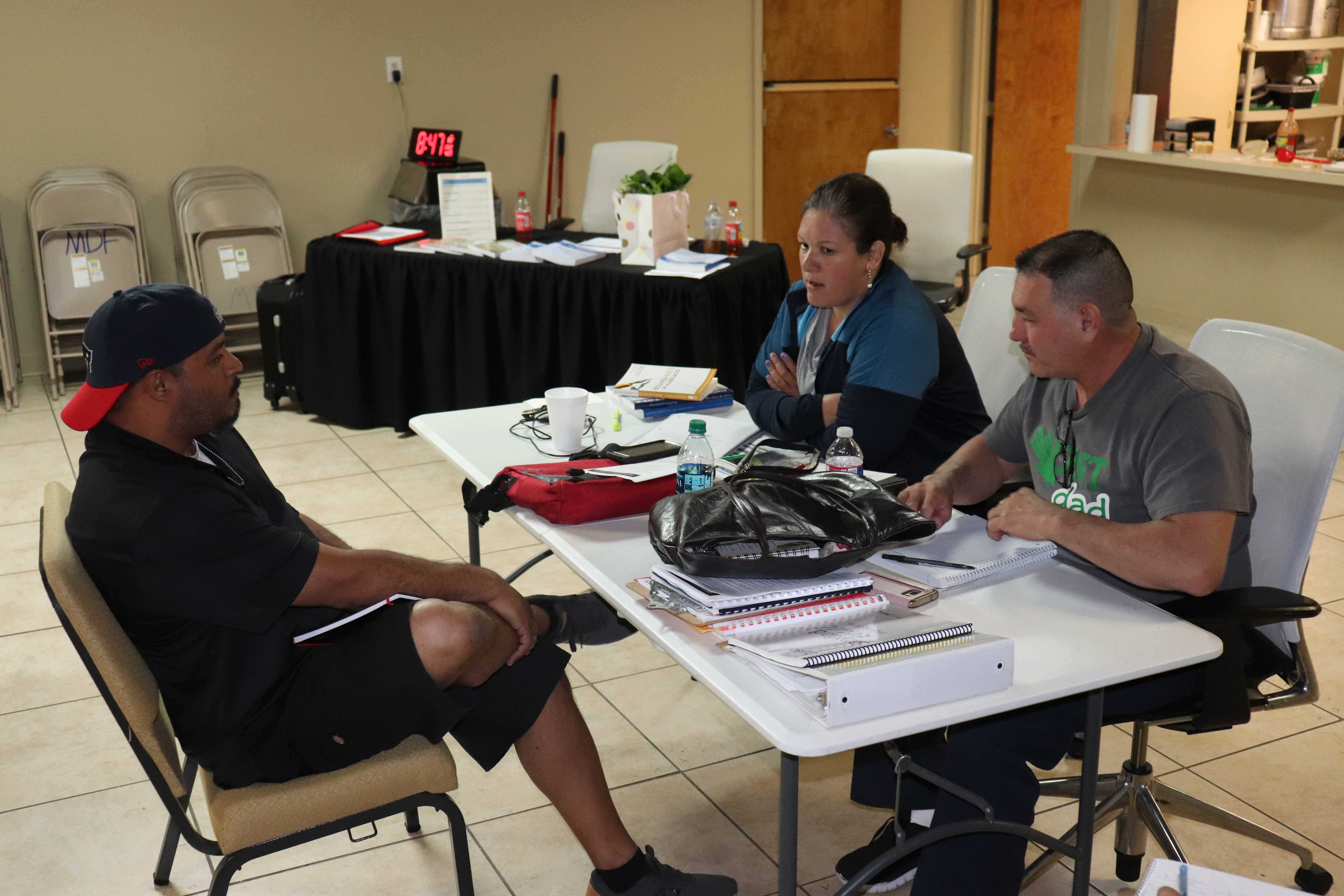 In chapter 2 of the book of Revelation, in the first seven verses, Jesus sends a message to the church at Ephesus. In this message, He makes one interesting statement, among the rest. (NASB, verse 2) “I know your deeds and your toil and perseverance, and that you cannot tolerate evil men, and you put to the test those who call themselves apostles, and they are not, and you found them to be false.” It caught my attention that the Lord indicated that there is a way to “test” church and ministry leadership. In the case of the Apostles, I asked myself (since He did not explain) what a test like that would include. Without a doubt, we are to test others and even the spirits (the ideas, thoughts, beliefs, and so on that tend to move us in specific directions. The Lord, through His Word, exhorts us to challenge these in 1 John 4:1 (NASB), “Beloved, do not believe every spirit, but test the spirits to see whether they are from God, because many false prophets have gone out into the world.” In the following two verses, our Lord even gives a method of this testing, “2 By this you know the Spirit of God: every spirit that confesses that Jesus Christ has come in the flesh is from God; 3 and every spirit that does not confess Jesus is not from God; this is the spirit of the antichrist, of which you have heard that it is coming, and now it is already in the world.”
In chapter 2 of the book of Revelation, in the first seven verses, Jesus sends a message to the church at Ephesus. In this message, He makes one interesting statement, among the rest. (NASB, verse 2) “I know your deeds and your toil and perseverance, and that you cannot tolerate evil men, and you put to the test those who call themselves apostles, and they are not, and you found them to be false.” It caught my attention that the Lord indicated that there is a way to “test” church and ministry leadership. In the case of the Apostles, I asked myself (since He did not explain) what a test like that would include. Without a doubt, we are to test others and even the spirits (the ideas, thoughts, beliefs, and so on that tend to move us in specific directions. The Lord, through His Word, exhorts us to challenge these in 1 John 4:1 (NASB), “Beloved, do not believe every spirit, but test the spirits to see whether they are from God, because many false prophets have gone out into the world.” In the following two verses, our Lord even gives a method of this testing, “2 By this you know the Spirit of God: every spirit that confesses that Jesus Christ has come in the flesh is from God; 3 and every spirit that does not confess Jesus is not from God; this is the spirit of the antichrist, of which you have heard that it is coming, and now it is already in the world.”
Notice that in John we are not given a way to directly test the prophets, but instead, we are given a way to test if something is from the Spirit of God. The point is that if you know what things are from God, then anything else will not be from Him. Though we are not given a specific step by step method of identifying false prophets (or apostles, pastors, teachers, evangelists, counselors, and so on), we are shown that there is some testing involved and that the responsibility falls on the believer to do the testing.
So, how do you put a counselor to the test? Well, each type of ministry to which God calls people has a specific and certain expectation. For example, the prophet of God is tasked with speaking forth specific things which God wants people to know. In the case of prophets, they must be correct 100% of the time, or they are not prophets of God. In the case of Apostles, they are tasked with overseeing local churches and exhorting those churches in the knowledge of the Word of God. Pastors are tested by the evidence of their love for their congregations and how well they prepare the sermons and teachings. Teachers of the Word are similarly judged as pastors, except they are specifically expected to be able to explain the Word in a manner in which the listeners, or students, will better be able to understand what is being taught, and then be able to teach others themselves. Evangelists are tested by their results, and how many people are saved at their camp meetings and other events.
The calling of God on a person will also include the expectations of that ministry. In the case of counselors, there are specific expectations anyone should have of counselors.
PRIVATE AND CONFIDENTIAL
The most important aspect, at least to the clients, is the expectation of privacy. They come to the counselor believing the counselor will not share any of the specifics of the session in a manner which will identify them as the ones who may have said those things. The come to the counselor in confidence of this privacy. Over my 30 years of counseling, I have learned that when people believe their conversation (legally referred to as their “communication,”) will be kept private and not disclosed, they will be much more willing to open up and discuss things which they would normally never consider telling another person. Throughout my years as a counselor, I have had many things shared with me that most people would find troubling. As a counselor, I once was told by a member of a local church that they were stealing money from the offering collection as they counted the money after it was taken into the ushers’ office. The person who seemed troubled by the theft was still doing so at the time of the counseling sessions. I know the church and the pastors, but I could not let them know that someone was stealing from them due to the confidentiality clause as a counselor.
Under the Texas Rules of Evidence (revised 01 April 2015), “Rule 505. Privilege For Communications to a Clergy Member,” the General Rule states – “A communicant has a privilege to refuse to disclose and to prevent any other person from disclosing a confidential communication by the communicant to a clergy member in the clergy member’s professional capacity as spiritual adviser.” As counselors certified by New Life Christian Counseling Ministry, our counselors are bound both legally (by this law) and doctrinally, because we have a policy that confessions will be kept confidential and must not be disclosed. At New Life, we consider people’s communications during a session to be an act of confession, and therefore private.
PERSONAL EXPERIENCE AND SKILL
Besides the fact that I have counseled for about 30 years, I have had the need, on occasion, to go to a counselor on myself. I know plenty of counselors, many of those I trained them myself, I know their skill levels and experience in counseling. When I chose my counselor, I looked for someone who had been counseling longer than myself, and who, at least to my knowledge, was a better counselor than myself. Think about it, who really wants to go to a counselor who has little to no experience in solving problems and who has little to no training. But, you might ask, what about those counselors who have just finished their training, are newly certified, and have no actual experience counseling people, should no one go to them? The answer to this great question is, “It is their responsibility to continue their training and personal development through reading related materials and books, attending additional seminars, conferences, and the like, and volunteering to attend sessions with more trained and experienced counselors.
The question is, “How does a counselor get experience in counseling?” The answer is, “By counseling.” Like myself, all counselors start “at the beginning.” You take on clients whose cases may seem not too difficult and you work with them in identifying the problem(s), figuring out what the solution needs to be, and then teaching the people involved how to take those difficult steps to a successful resolution.
APPLICATION OF THE PRINCIPLES AND TEACHING
The next test I would put to a counselor is to judge how their relationships with those around them, especially with their immediate families. How a man treats his wife, or a woman her husband, and how they treat their children will be a huge factor as to whether I want them counseling me. When Paul uttered, “Imitate me, as I imitate Christ,” in 1st Corinthians 11:1, He was calling on people to look at his life, to check him out, and make their judgments on him as to whether we walked the walk. Any counselor worth his salt would have no problem with you looking into their private lives in regard to the things they counsel others to do. I do not tell people to “keep your eyes on Jesus,” I tell them to keep their eyes on me and see if I am keeping my eyes on Jesus. A “good” counselor will be able to use portions of his or her life as examples of how the client can also make changes in their own lives. Just as Jesus and Paul said “copy me,” every Christian counselor must be able to say to any person, “Live as I do, and you will be okay with God too.” Why is this true? Because a counselor should never ask someone else to do something that they would not do themselves if they were in the same predicament. It is easy to give advice, but a whole other thing to live that advice oneself.
PERSONAL MOTIVATION
The final question I would have of any counselor, Christian or not, is “Why?” Why did they want to become counselors? As someone who has counseled for about 30 years, I know there are a varied number of reasons why people choose this route. When I first started studying psychology, my single most reason for doing so was to be able to manipulate others into doing what I wanted. I had no healthy reason for my efforts. I figured I would work in this field, make money, and have the power to control others. There are counselors, Christian and non-Christian, who have a “God complex.” This better-than-thou attitude is common in psychology, psychiatry, and counseling. You can identify some of these people by the critical, and often judgmental manner, in which they conduct their counseling sessions.
As part of counseling training, we put the new counselors through practice sessions. We get those who have already completed the course to play the role of the clients. During one such practice session, I asked a certified counselor to play the role of a man who was struggling with pornography. He sat before the “counselor” and explained that he had been viewing porn and was asking for help. The “counselor” asked, “Don’t you know it’s wrong to see pornography?” to which the “client” answered, “Yes.” Then the counselor pointed a finger at the “client” and told him to “stop doing it.” Yes, we all started laughing as well.
The sad fact is this is the type of counselor I have too often encountered throughout my 30 years in this ministry. Some of these “counselors” are rigid, religious, strict, and merciless people of little to no compassion. The poor clients who come to see these “counselors” will leave the session feeling worse than when they came. A Christian counselor without mercy and compassion is not a “Christian” counselor. The reason why a person should want to become a Christian counselor is that he or she loves the Lord. We do not counsel people because we want to help them, we help those we counsel because we want to please God. With all the troubles in this world, the focus needs not to be on the hurting and suffering people, but on Jesus who loves them and wants to use us to minister to those people. It is not what counseling can or cannot do for those who need help, it’s about Jesus, and Him crucified. He is the answer which a counsel should endeavor to help the client come to recognize. There is a saying that if a man is hungry we can give him a fish to eat. It goes on to say that we then must also teach him how to fish so that he can learn to feed himself. But as Christian counselors, we must add one more step, and that is to lead the person to come to know and accept Jesus Christ as His Savior. This way, he will be fed, learn to feed himself, and will have within him the bread from above that satisfies all hunger.
PASSING THE TESTS
Those are the four areas in which I judge counselors. Those are the four areas I want others to judge me as well. I am willing to be judged in these areas like I judge them.







